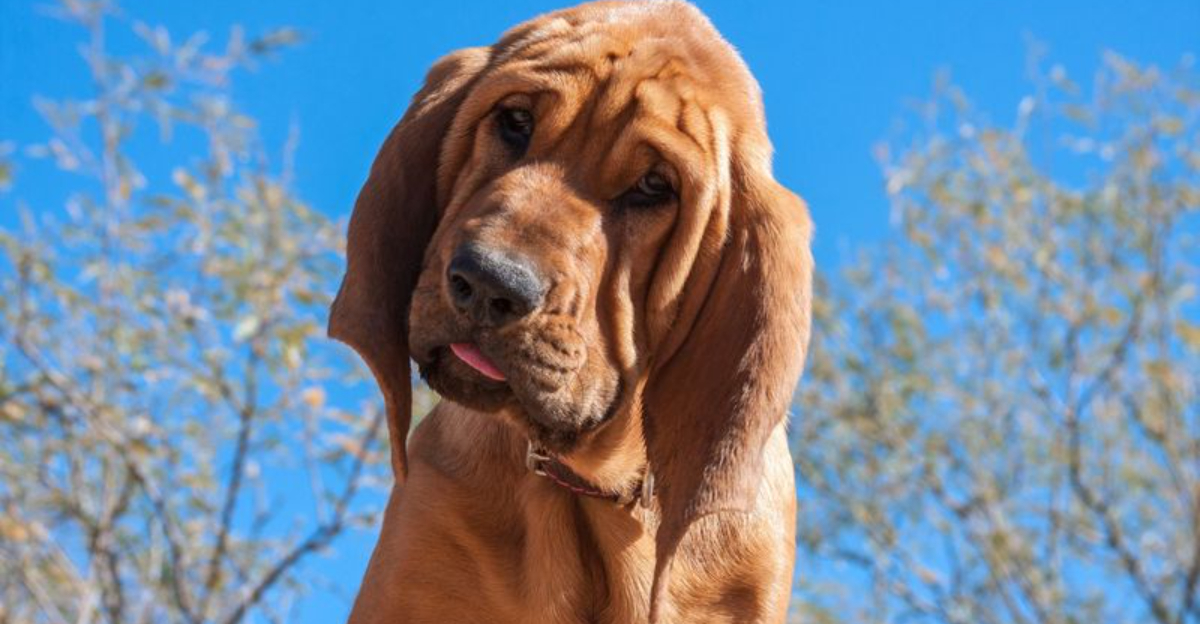When it comes to intelligence, not all dog breeds are created equal. While some canines are renowned for their quick learning and problem-solving skills, others are known for their adorable but somewhat clueless nature.
In today’s article, we explore some dog breeds that are famously lovable but not the sharpest tools in the shed.
These breeds might take a little longer to learn new tricks, but their affectionate personalities more than make up for it. Let’s take a lighthearted look at these endearing dogs whose low IQs add to their charm.
1. Bulldog
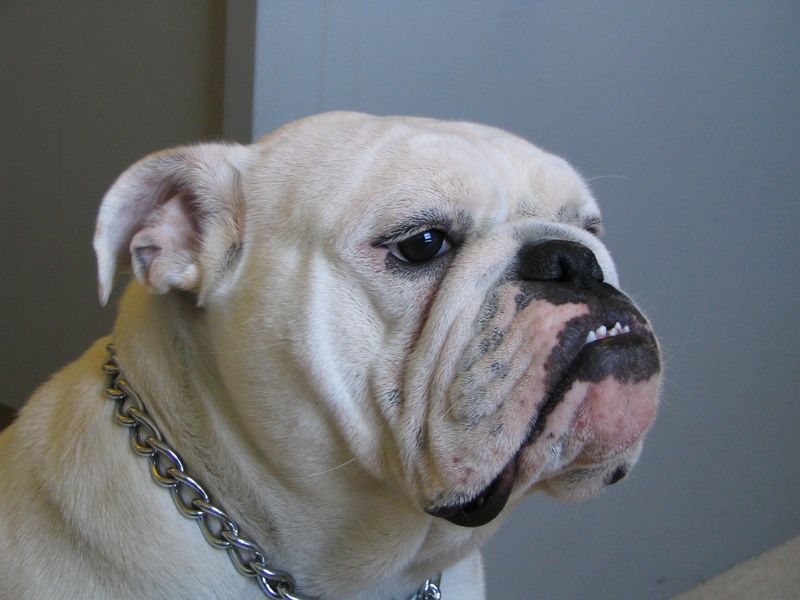
Bulldogs are known for their stubbornness, which can sometimes be mistaken for low intelligence. Despite their slow learning curve, their loving nature makes them a favorite among families. These dogs thrive in a relaxed environment where they can take their time to understand commands.
While they might not excel in obedience training, Bulldogs are excellent at forming strong bonds with their owners. Their stocky build and wrinkled face give them a unique charm. Bulldogs often require patience from their trainers, but the effort is rewarded with loyalty and affection.
These dogs are perfect companions for those who appreciate a laid-back lifestyle. Though they may not be the quickest learners, their jovial spirit is infectious.
With proper motivation, Bulldogs can learn basic commands, albeit at their own pace. It’s essential to use positive reinforcement and plenty of treats to encourage them. If you’re seeking a loving, albeit slow-witted companion, a Bulldog might be the perfect choice.
2. Basset Hound

The Basset Hound is often seen as laid-back and easygoing, but this can sometimes translate to a leisurely learning style.
Known for their droopy ears and soulful eyes, these dogs are endearing but not exactly the fastest learners.
Their strong sense of smell can often divert their attention during training sessions. Despite their slower wits, Basset Hounds are affectionate and gentle companions. They thrive in environments where they can leisurely explore their surroundings.
Patience and consistency are key when training these hounds, as they may take longer to grasp new commands. Their stubborn streak is balanced by their warm, friendly demeanor. Basset Hounds are excellent family pets, especially for those who appreciate a relaxed pace.
Their lovable nature and unique appearance make them a charming addition to any household. While they may not be the brightest, their loyalty and companionship are unmatched.
3. Mastiff
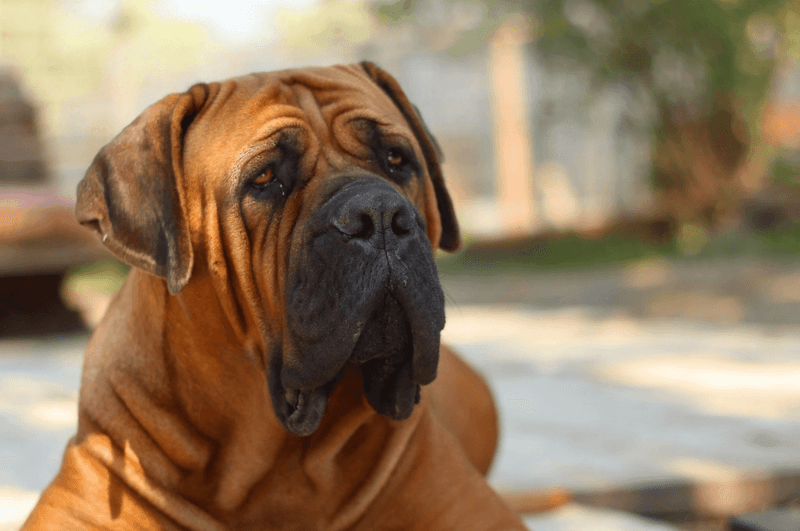
They are gentle giants known for their protective instincts, but their intelligence level is often regarded as average at best.
These colossal dogs excel in guarding their families but may struggle with complex training tasks. Their calm and easygoing nature makes them wonderful companions for those with ample living space. Despite their size, Mastiffs are surprisingly gentle and affectionate.
They require a patient trainer who can provide consistent guidance and positive reinforcement. Mastiffs often respond well to training methods that incorporate rewards and praise.
Their imposing presence is matched by a heart of gold, making them loyal and devoted pets. While they may not learn tricks as quickly as other breeds, Mastiffs make up for it with their unwavering devotion and protective instincts.
These dogs are happiest when lounging by their owner’s side, offering both comfort and security.
4. Beagle

These merry hounds are easily distracted by scents, making training a bit of a challenge. Despite this, their enthusiasm and playful nature make them delightful companions.
Beagles thrive on exploration and adventure, often following their noses wherever they lead. This trait, while endearing, can make obedience training somewhat tricky.
Patience and consistency are essential when working with Beagles, as they require time to focus and learn new commands.
Their sociable and friendly personalities make them great family pets. Beagles enjoy being part of an active household where they can engage in plenty of activities. Though they may not be the sharpest learners, their zest for life and playful antics are sure to bring joy to their families.
5. Pekingese
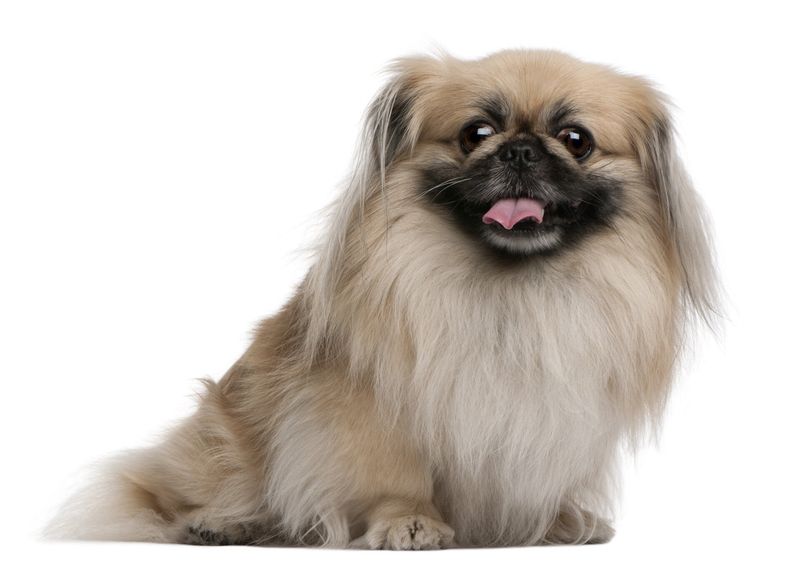
These dogs are known for their royal demeanor and luxurious coats, but they aren’t exactly known for their sharp wits. These regal companions have a long history of living in palaces, and their independent nature reflects their aristocratic heritage.
Training a Pekingese requires patience and understanding. Their independent spirit can make them seem aloof at times, but they are deeply affectionate with their chosen humans.
Pekingese may take longer to learn commands due to their stubborn streak, but their love and loyalty are worth the effort. These dogs thrive in a calm and stable environment where they can be the center of attention.
Their charming personality and striking appearance make them popular among those who appreciate their unique features. While they may not ace intelligence tests, their endearing traits and companionship are truly royal.
6. Bloodhound
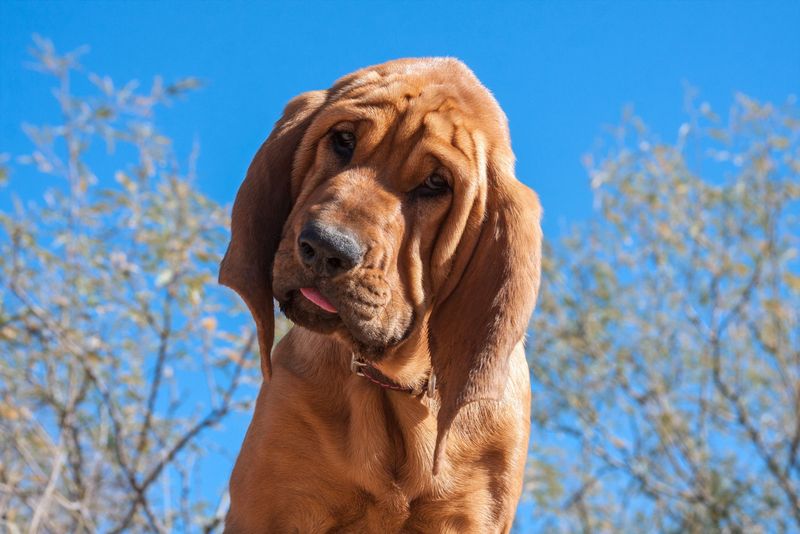
Bloodhounds are famed for their incredible sense of smell, but their trainability often leaves something to be desired.
While they excel in scent-tracking, their attention during training sessions can be fleeting. Their independent nature, combined with their keen noses, often means they follow their own instincts rather than commands.
These hounds are gentle and affectionate, making them wonderful companions for families. Training a Bloodhound requires persistence, patience, and plenty of positive reinforcement. While they may take longer to learn, their ability to track scents is unmatched.
Bloodhounds are happiest when they have a job to do, such as scent work, which aligns with their natural talents.
Though not known for their intelligence in traditional terms, their specialized skills make them valuable and beloved pets. Their dedication and gentle nature make them a unique addition to any family.
7. Shih Tzu

Shih Tzus are known for their adorable appearance and friendly nature, but they often rank low in intelligence tests.
These dogs were bred to be companions, and their primary focus is on forming bonds with their humans. Training a Shih Tzu requires patience due to their sometimes stubborn disposition. These dogs are incredibly affectionate and thrive in a loving home environment.
They may not be the quickest learners, but their loyalty and charming personalities make them endearing companions.
Shih Tzus appreciate routines and consistency in their training. Their small size and manageable needs make them ideal pets for apartment living.
While they might not master tricks or commands swiftly, their companionship and love are unwavering. A Shih Tzu’s delightful presence can brighten any household, bringing joy to their families despite their slower learning curve.
8. Pug

Just look at that clueless face! Pugs are adored for their comical expressions and friendly demeanor, though they aren’t the quickest learners. These charming little dogs have a reputation for being somewhat headstrong, which can make training a bit of a challenge.
Their love for fun and play often takes precedence over obedience. Despite their slower learning pace, Pugs are deeply affectionate and form strong bonds with their families.
They thrive in environments filled with love and companionship. Patience and positive reinforcement are key to successfully training a Pug. Their small size and playful nature make them excellent pets for families and singles alike.
While they may take a while to grasp commands, their jovial spirit and loving nature more than compensate. Pugs bring laughter and warmth to any home, making them irresistible despite their adorably low IQ.
9. Chow Chow
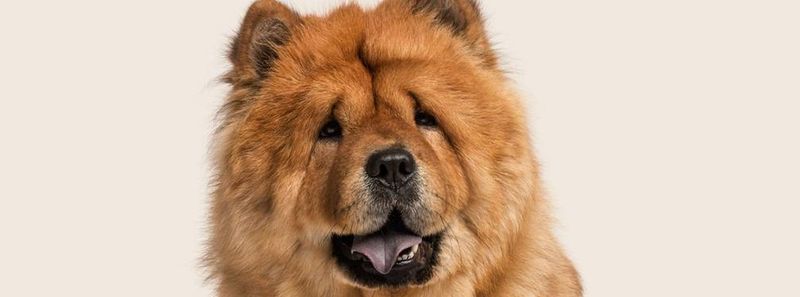
Chow Chows are known for their aloof and independent nature, often leading to misconceptions about their intelligence.
These dignified dogs have a strong will, which can make training a challenge for inexperienced owners. Their often detached demeanor does not mean they lack affection for their families. These dogs require a firm but gentle approach to training, with plenty of patience.
Positive reinforcement and consistency are crucial for successful interactions with a Chow Chow. They may take longer to learn commands, but their loyalty to their family is unwavering.
Chow Chows are best suited for experienced dog owners who appreciate their unique personalities. While they may not excel in obedience, their majestic appearance and strong character make them a treasured addition to any household. Their love, though selectively given, is deep and meaningful.
10. Afghan Hound
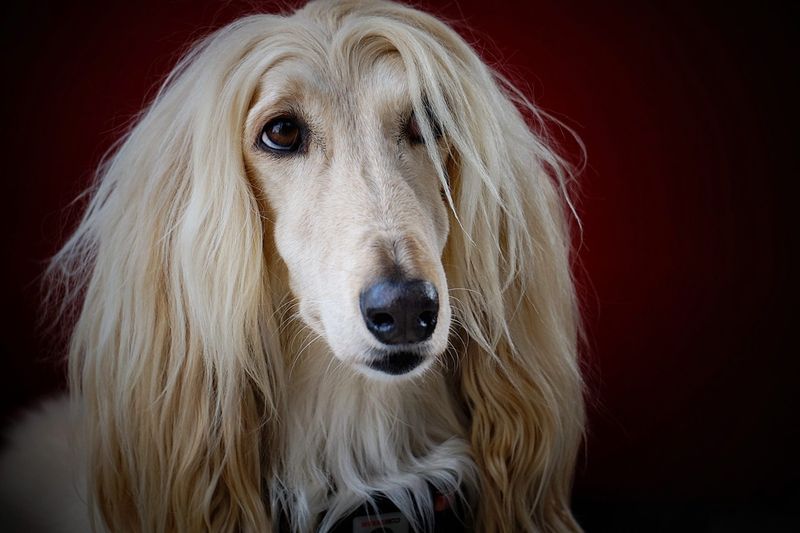
These dogs are independent and sometimes aloof, which leads to a challenging training. Their striking appearance often captivates dog lovers, overshadowing their slow learning pace. These hounds require an experienced owner who can provide consistent and patient training.
Positive reinforcement methods work best with Afghan Hounds, as they respond to kindness and reward rather than force.
Their independence should be respected, allowing them to express their unique personalities. Afghan Hounds thrive in environments where they can run and play freely.
Their graceful movements and regal appearance make them stand out in any setting. While they might not master commands quickly, their beauty and charm are undeniable. Afghan Hounds bring elegance and a touch of wild spirit to their homes.
11. Lhasa Apso

Lhasa Apsos are known for their regal looks and independent nature, often leading to a slower learning pace.
These dogs were originally bred as watchdogs for Tibetan monasteries, which contributes to their alert and sometimes aloof demeanor.
Training a Lhasa Apso requires patience and understanding. Despite their independent streak, these dogs form strong bonds with their families. Consistency and positive reinforcement are key when training a Lhasa Apso.
Their protective nature makes them excellent watchdogs, but they may take longer to learn basic commands.
Lhasa Apsos thrive in calm and stable environments where they can be part of the family. Their striking appearance and loyal companionship make them a treasured addition to any home. While they may not be obedience stars, their presence and devotion are deeply valued.
12. Great Pyrenees
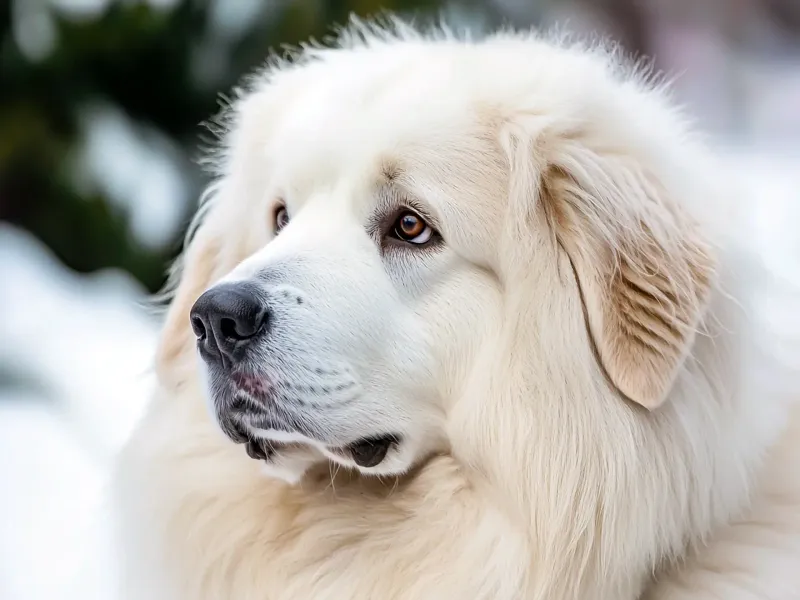
The Great Pyrenees is known for its calm demeanor and protective instincts, but not for its high intelligence.
These gentle giants were bred to guard livestock, and their independent nature reflects this heritage. Training a Great Pyrenees takes patience and consistency due to their sometimes stubborn tendencies.
Despite their slow learning curve, these dogs are incredibly loyal and devoted to their families. Positive reinforcement and gentle guidance work best with this breed. Great Pyrenees dogs thrive in environments where they have space to roam and work.
Their majestic appearance and gentle nature make them cherished companions. While they may not excel in obedience trials, their unwavering loyalty and protective instincts are unmatched. Great Pyrenees dogs bring a sense of peace and security to their homes, making them invaluable family members.
13. Old English Sheepdog
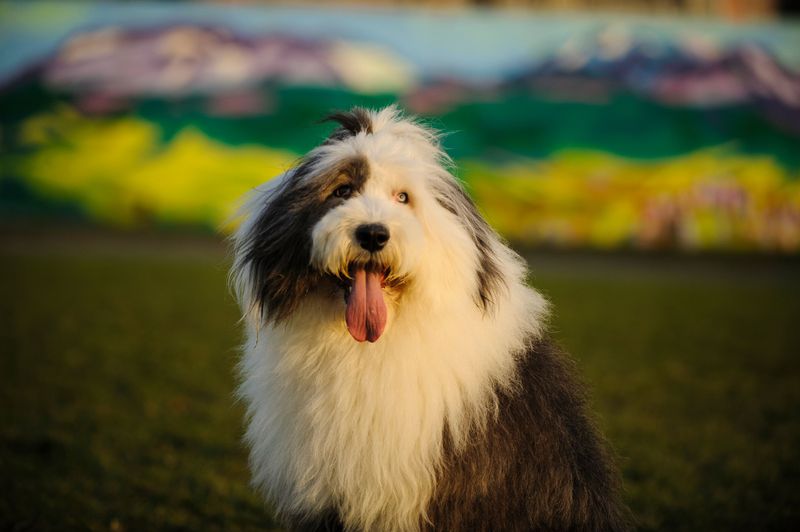
English Sheepdogs are known for their shaggy coats and friendly personalities, but their intelligence isn’t their standout trait. These dogs are playful and energetic, which can sometimes lead to challenges in training.
Their boisterous nature requires patience and consistency from their trainers. These dogs thrive in active households where they can participate in family activities. Positive reinforcement and a structured environment help them learn more effectively.
While they might take longer to grasp commands, their affectionate nature makes them wonderful pets. Old English Sheepdogs are excellent companions for families who appreciate their lively spirit.
Their unique appearance and loving demeanor make them a delightful addition to any home. Though they may not be the quickest learners, their presence brings joy and laughter to their families.
14. Italian Greyhound

These delicate dogs have a sensitive and independent nature, which can make training a challenge. Their graceful movements and elegant appearance often captivate dog lovers.
Despite their slower learning pace, Italian Greyhounds are affectionate and loyal companions. They require a gentle approach to training, with plenty of positive reinforcement.
These dogs thrive in environments where they can run freely and express their energy. Italian Greyhounds are best suited for experienced dog owners who can appreciate their unique personalities.
While they may not excel in obedience, their elegance and charm are undeniable. Their presence adds a touch of sophistication and warmth to any household, making them beloved pets.
15. Saint Bernard
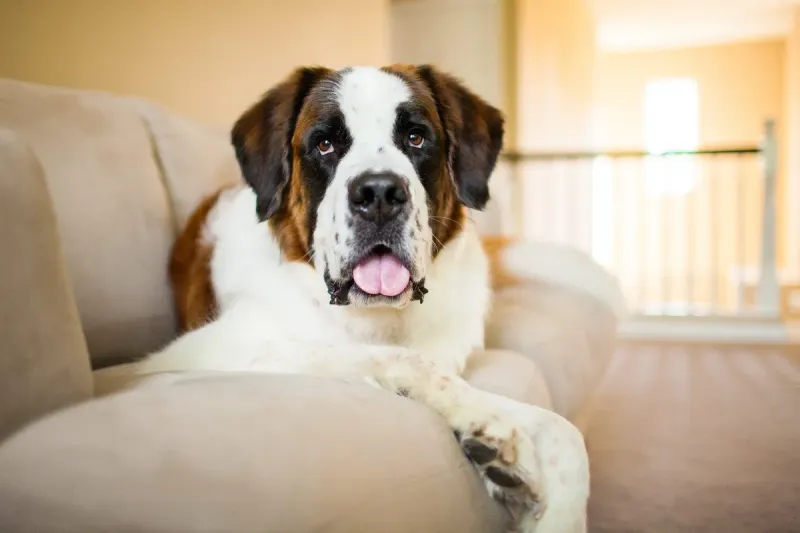
Saint Bernards are gentle giants known for their calm demeanor, but their intelligence is often considered average.
These dogs were originally bred for rescue work in the Swiss Alps, which gives them a strong sense of duty but not necessarily quick wits. Training a Saint Bernard requires patience and consistency, as they can sometimes be stubborn.
Positive reinforcement and rewards work best with this breed. Despite their slower learning pace, they are incredibly loyal and protective family members.
Saint Bernards thrive in homes where they have space to roam and families to protect. Their massive size and gentle nature make them cherished companions. While they may not be the most obedient dogs, their loving presence and dedication to their families are truly heartwarming.
16. Bull Terrier
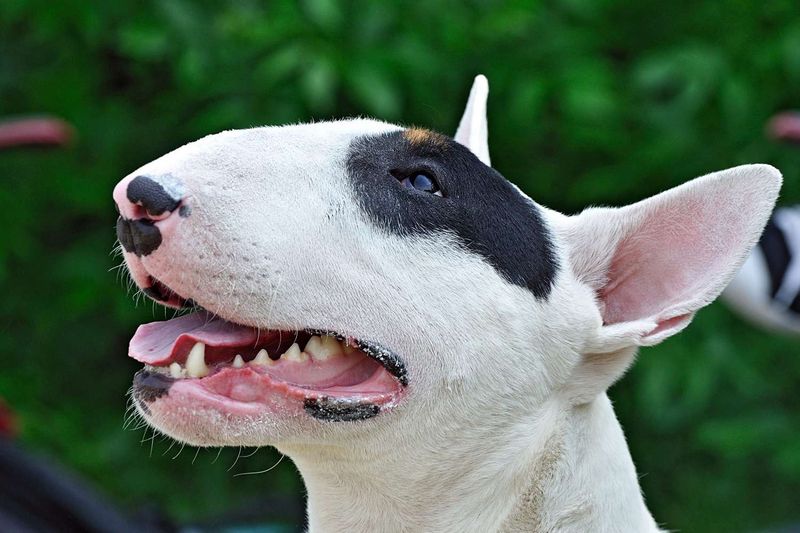
Known for their unique appearance and playful spirit, but their intelligence isn’t their forte. These energetic dogs have a strong will, which can make training a bit of a challenge.
Their spirited nature and love for fun often take priority over learning commands. Consistency and patience are key when training a Bull Terrier.
Positive reinforcement methods work best, allowing them to channel their energy into constructive behaviors. Despite their slower learning curve, Bull Terriers are affectionate and loyal companions. These dogs thrive in active households where they can engage in play and exercise.
Their distinctive look and lively demeanor make them a favorite among dog enthusiasts. While they may not excel in obedience, their zest for life and loyal nature make them beloved pets.

